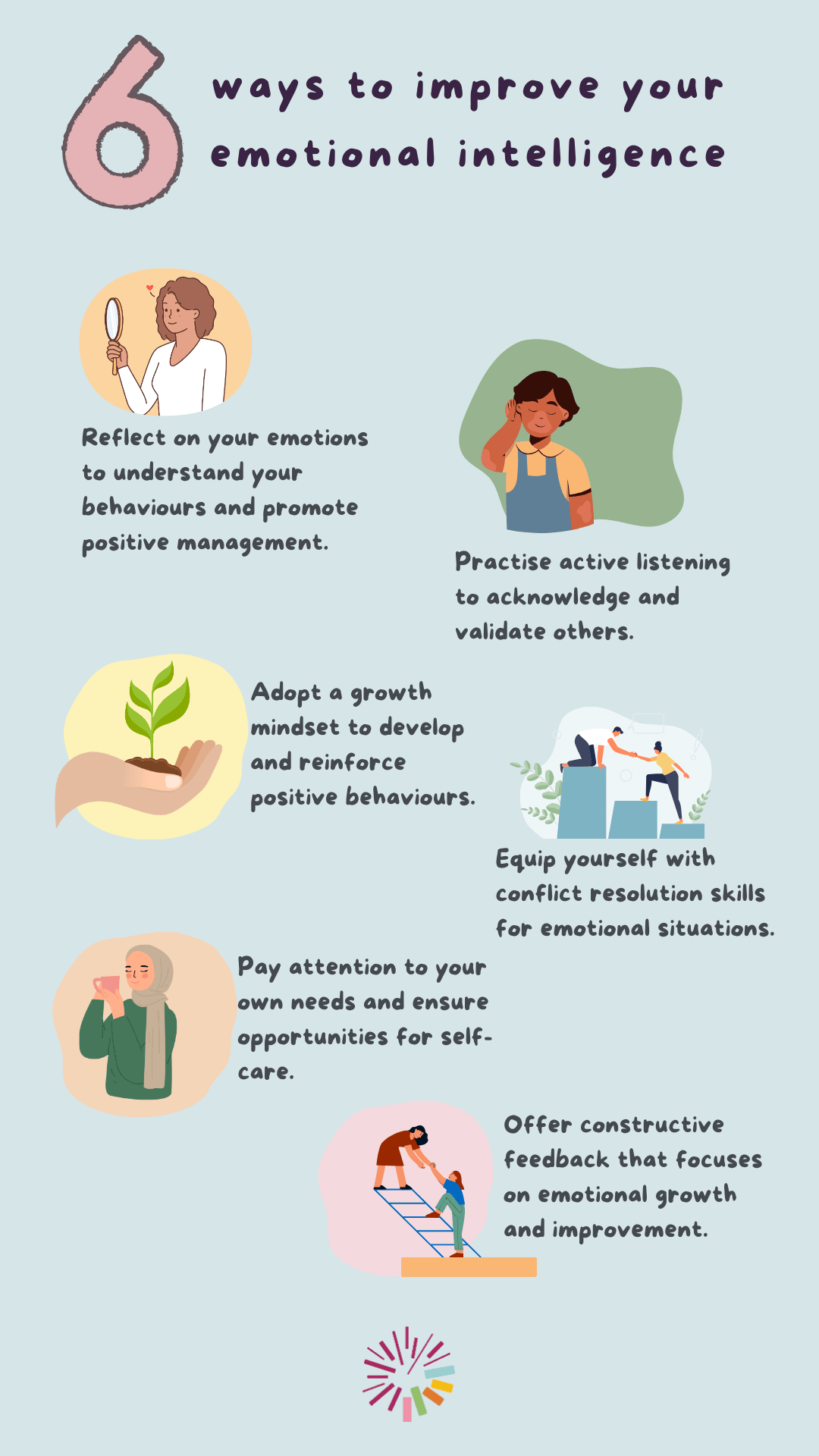6 steps to support emotional intelligence
Emotional intelligence is all about ‘reading between the lines,’ reading our emotions and recognising those of others to understand and acknowledge them better, allowing us to express ourselves in a safe way and regulate strong feelings. It's a valuable attribute to spend time developing both for your professional life and for your personal identity, health and relationships.
Reflect on your emotions
It's helpful to regularly reflect on feelings, identifying what can influence particular emotions, and how they can impact your behaviour and attitude. Are there specific topics that are more difficult to manage emotions of? Does a particular place or person promote positive feelings over others?
Build upon your empathy skills through active listening
Practise active listening by giving full attention to others, acknowledging their feelings and validating their emotional experiences.
Pay attention to your own needs
Take time to identify what contributes towards emotional reactions and think about the deeper meanings behind these. Reflecting about emotions can be tricky to do so ensure you set aside time for self-care practices that ground you and support positive feelings.
Get clued up on conflict resolution
Equip yourself, and encourage others, with the skills to handle conflicts constructively, focusing on finding mutually beneficial solutions and positive ways forward that diffuse emotionally charged actions.
Positive attitudes towards ourselves
Reinforce positive behaviours by adopting a growth-mindset approach to build confidence and encourage further emotional development for ourselves and others around us.
Cultivate a supportive environment
Establish environments where people feel safe to express their emotions without judgment or ridicule. Offer constructive feedback that focuses on emotional growth and improvement, while being supportive and non-critical.
To conclude
Emotional intelligence is considered a core skill for an effective working culture and many employers will value it especially for roles of leadership and management. But it's not just about leading others – recognising your own emotional capacity and understanding ways to develop calm ways to respond to challenging emotional situations is also of benefit for your own wellbeing and leading yourself.







